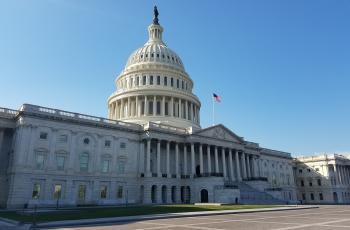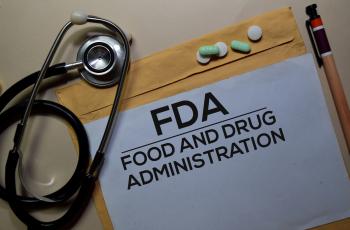News Updates - 7/1/2021
With this series we will bring you the latest news in diabetes advocacy and policy. This week we cover news updates in insurance and access to care, stigma and society, insulin affordability, and government and legislation.
Insurance and Access to Care
In California v. Texas, the most recent attempt to strike down the Affordable Care Act, the Supreme Court voted 7-2 in favor of upholding the law. After months of anticipation, the ACA, and the millions of Americans the law helps cover, are safe.
Why it matters: Due to the COVID-19 pandemic, a record number of Americans currently have health insurance through the ACA. Over 20 million Americans will continue to have access to their health insurance. The ACA helps people with diabetes in particular by outlawing discrimination against people with preexisting conditions, expanding healthcare coverage for young adults, and increasing access to free preventive health services. After the Supreme Court decision, we are hopeful that the ACA is here to stay.
Insurance coverage gaps disrupt access to care
A recently published study assessed the impact of gaps in insurance coverage on access to medical care. The study found that coverage disruptions, where individuals were not covered by insurance for a period of time, were common with up to 10.7% of adults reporting a coverage gap and 25% of adults reporting a loss of coverage in the prior year. Uninsured adults and those with extended coverage gaps had significantly worse access to affordable care than those who were fully insured.
Why it matters: This research emphasizes the importance of increasing access to affordable, quality health insurance. People with diabetes are especially vulnerable when they are not covered by insurance due to the high cost of therapies and devices they need to survive. While the Affordable Care Act has made healthcare more accessible for people with diabetes, more can be done to ensure that no person with diabetes has to forgo care due to a lack of insurance coverage.
Record number of Americans have health insurance through the ACA and Medicaid expansion
According to the HHS, over 31 million people have healthcare through the ACA and Medicaid expansion. The HHS has also indicated that uninsured rates have decreased in every state since the law’s coverage was expanded. Since the ACA special enrollment period began on February 15th, 1.2 million Americans have signed up for coverage.
Why it matters: Because a record number of Americans have accessed health insurance through the ACA and Medicaid, uninsured rates are decreasing. Access to insurance is imperative for people with diabetes to receive quality, affordable healthcare. These high rates of insurance coverage are particularly exciting because ACA insurance is becoming more affordable thanks to the most recent COVID-19 relief package. While many people with diabetes continue to experience barriers to care, this increase in ACA coverage is promising.
What's next: The special enrollment period to enroll in ACA health coverage will end August 15th.
Insulin Affordability
Mississippi sues drug makers and PBMs over insulin pricing
Earlier in June, the Mississippi attorney general filed a lawsuit against several pharmaceutical companies and pharmacy benefit managers (PBMs), accusing them of conspiring to artificially increase insulin prices. The Attorney General stated that “I filed this lawsuit on behalf of every Mississipian who relies on this medication to survive. These companies are exploiting the vulnerable.” Insulin manufacturers and PBMs have historically denied claims of artificial price inflation.
Why it matters: This is the first time a state is accusing both insulin manufacturers and PBMs of hiking the price of insulin. A similar lawsuit was filed in Harris County in 2019 but Mississippi is the first to file on behalf of its residents. While many factors contribute to the price of insulin, better understanding the role of manufacturers and PBMs in insulin pricing is vital in reducing the cost of the life saving drug. Learn more here.
Walmart announces new low-cost insulin to be sold in stores
The first ever private brand of analog insulin will be sold in Walmart stores that is only $73 for a vial and $86 for a package of prefilled insulin pens. The Novo Nordisk insulin will be sold through Walmart’s private ReliOn brand as a way to offer an affordable insulin to people with diabetes without health insurance. The drug is available in Walmart stores and will be available in Sam’s Club stores in July.
Why it matters: This is great news for people with diabetes, especially those who are uninsured. People without insurance can now save thousands of dollars on insulin annually by using this new ReliOn version. Given the rising cost of insulin in recent years, more work is needed to ensure all people with diabetes can access the treatments they need to survive. Learn more here.
Government and Legislation
Lowering the Medicare eligibility age could improve access to quality diabetes care
Policymakers are advocating to increase access to Medicare coverage by lowering the eligibility age from 65 to 60. Research on the topic indicates that expanding Medicare could improve access to affordable insurance for over 20 million people in the US.
Why it matters: 1 in 4 people over the age of 65 and 1 in 3 people on Medicare have diabetes. If Medicare were expanded to include all people over the age of 60, millions more people with diabetes could access affordable and quality care. Accessing Medicare at a younger age could also help people with diabetes avoid long term complications.
CMS prioritizes expanding insurance coverage
Head of the Centers for Medicare and Medicaid Services (CMS) Chiquita Brooks-LaSure intends to prioritize expanding equitable access to insurance. After the COVID-19 pandemic highlighted an insurance crisis in the US, Brooks-LaSure aims to increase access to care for people living in states that have not expanded Medicaid and to increase education about government insurance options in the US.
Why it matters: Diabetes disproportionately impacts low-income populations who are eligible for Medicaid and 1 in 3 Medicare beneficiaries have diabetes. Improvements to government health insurance programs could significantly improve access to quality and affordable care for people with diabetes in the US.
Bill introduced to improve Medicare access to innovative diabetes technologies
Co-chairs of the Senate Diabetes Caucus, Senators Jeanne Shaheen and Susan Collins, introduced legislation to improve access to diabetes technologies for people on Medicare. The Improving Medicare Beneficiary Access to Innovative Diabetes Technologies Act would establish an HHS and CMS task force that works to reduce barriers to diabetes technologies for seniors.
Why it matters: While Medicare covers most CGMs, people with diabetes on Medicare do not have full access to the latest diabetes technologies, such as CGMs, insulin pumps, and automated insulin delivery systems. With a daughter and granddaughter with type 1 diabetes, Senator Shaheen is personally familiar with the complicated process of getting new technologies covered by insurance. If passed, this bill will help increase access to affordable diabetes technologies for people on Medicare.
What's next: The bill was introduced in the Senate on June 21st and no further actions have been taken on the legislation.
Bill introduced to permanently expand telehealth
The Protecting Rural Telehealth Access Act was introduced in the Senate on June 9th. If passed, the bill would increase access to telehealth services by allowing audio-only telehealth services, waiving geographic restrictions, allow rural health clinics and federally qualified health centers to serve as sites for telehealth, among other measures.
Why it matters: People with diabetes in rural areas have worse health outcomes including higher rates of diabetes complications. This is largely because these individuals have less access to diabetes healthcare and have to travel longer distances to receive care. Increasing access to telehealth in rural areas would make it easier for people in rural areas to consult their care providers and likely improve health outcomes in those communities.
What's next: The bill was introduced in the Senate on June 9th and no further actions have been taken on the legislation.
What you can do: For more information on telehealth and how it can improve healthcare, look here.
Stigma and Society
New study indicates worse US diabetes outcomes in the past decade
A recent study of diabetes outcomes in the US over the past two decades have indicated that glycemic and blood-pressure control have worsened since 2010. From 2007-2010, over 57% of adults with diabetes had an A1C less than 7%. From 2015-2018, only 50.5% of adults with diabetes reached that same target. Similarly, over 74% of adults with diabetes met recommended blood pressure targets between 2011 and 2014 while only 70% of adults with diabetes reached blood pressure targets from 2015-2018.
Why it matters: Despite countless innovations in diabetes therapies and technologies in the past decade, we are seeing worse diabetes health outcomes nationally. Researchers recommend increasing the use of first-line therapies, which are often more affordable than new treatments, to improve glycemic and blood pressure control in the US. A national commitment to increasing access to diabetes healthcare and improving diabetes education is vital in improving these health outcomes in the US.
How can people with diabetes be better allies?
In a Beyond Type 1 op-ed, Lala Jackson writes about how the diabetes community can be better allies to Black Americans, especially in accessing quality healthcare. Jackson writes “While the healthcare system in the United States has been failing the diabetes community for several decades, our country has been disenfranchising, violently suppressing, and silencing Black people for hundreds of years.” Jackson explains that while white people do not have the lived experience of being Black in America, all people with diabetes have at least some understanding of watching people “stay silent” as they “fight for their right to live.” White people with diabetes should use this experience to be better allies to Black people in the US.
Why it matters: While barriers to healthcare for Black Americans are much greater than for white people with diabetes, Jackson recognizes how people with diabetes can use their experiences with the disease to motivate and inform their allyship towards the Black community. This is especially relevant to the diabetes community because Black Americans are more likely to have diabetes and related health complications. To be a better ally, Jackson encourages white, and other non-black individuals, to use their position of privilege to amplify black voices, speak out against racist policies and systems, educate one another on racism in the US, and advocate for the rights of Black Americans.
What you can do: Look here for resources on how you can be an ally.


